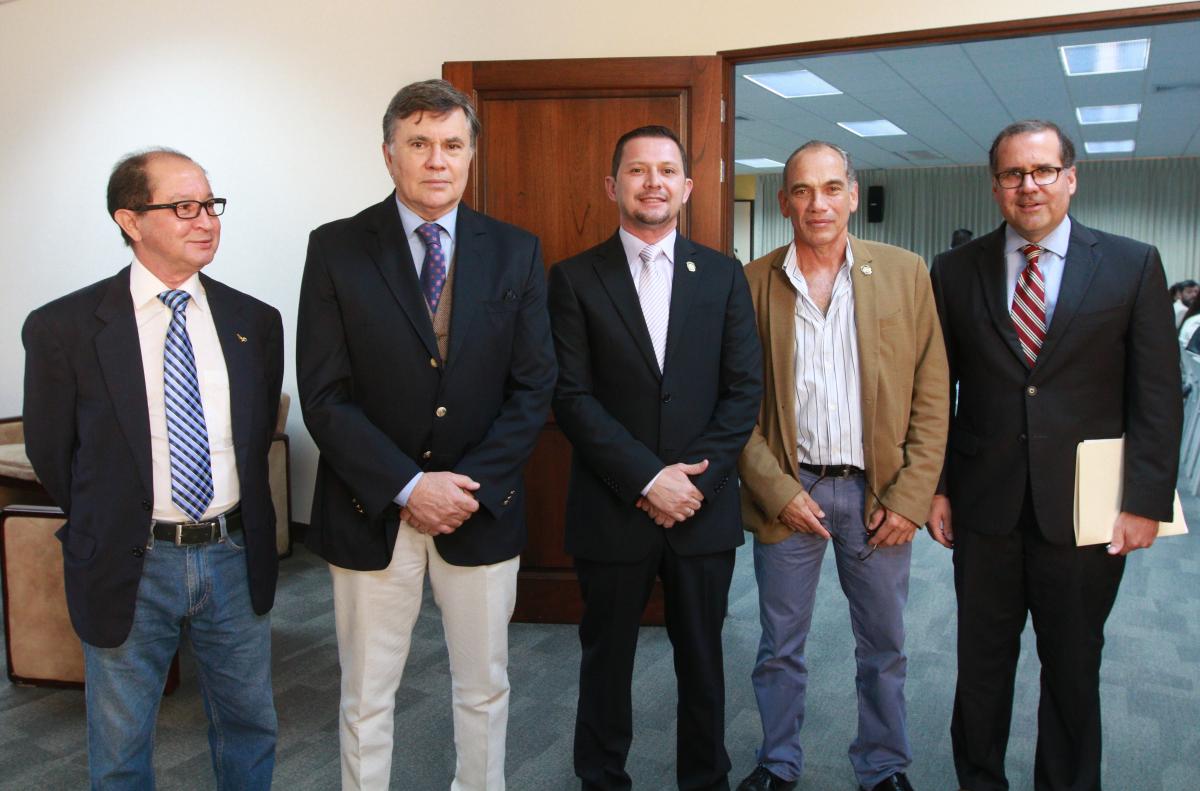Costa Rica and IICA drive strategy for the digital transformation of the agriculture sector

San Jose, 28 March 2019 (IICA). A digital transformation in the agriculture sector will generate considerable economies of scale, strengthen the capacity to mitigate risks associated with climate change, as well as increase the number of agricultural companies and their capital.
This was the conclusion reached by participants in a panel discussion organized by the Ministry of Science, Technology and Telecommunications of Costa Rica (MICITT), the Ministry of Agriculture and Livestock of Costa Rica (MAG) and the Inter-American Institute for Cooperation on Agriculture (IICA). The discussion will contribute to guiding the digital transformation of the agriculture sector through the inclusion, development and application of technological tools.
In attendance at the event were Costa Rican ministers Luis Adrián Salazar and Renato Alvarado, who head the Ministry of Science, Technology and Telecommunications and the Ministry of Agriculture and Livestock, respectively, as well as Manuel Otero, Director General of IICA.
Mario Vargas, Director of Advanced Technologies at Microsoft, and Federico Castro, IT Operations Manager for Latin America at Intel, also participated.
Vargas delivered a presentation on the use of Big Data in agriculture, while Castro shared the experience of Intel, a technological multinational company, in establishing an innovation center headquartered in Costa Rica.
Representatives of Lantern Technologies and CENFOTEC University also made valuable contributions during the panel discussion, addressing topics such as the use of Blockchain for coffee traceability and Internet of Things in agriculture. The companies also gave demonstrations of technologies they have developed for use in the field.
This initiative is tied to the 2015-2021 National Telecommunications Development Plan and the 2018-2022 Digital Transformation Strategy towards the Costa Rica of Bicentennial 4.0, which are spearheaded by MICITT. The plans seek to reduce digital gaps with respect to the access, use and adoption of technologies to improve the quality of life of vulnerable populations, as well to accelerate productivity, competitiveness and socio-economic development by capitalizing on the fourth industrial revolution.
According to Otero, Costa Rica has demonstrated great wisdom by involving various stakeholders in this task, which should be undertaken not only by ministries, but by all public and private sector organizations.
“It is time for us to jointly generate public goods for those who need them the most. The new version of agriculture must be smart from an ecological, nutritional and digital perspective. We must transform rural areas into hubs for progress, and new technologies provide us with this opportunity. Our region will play a fundamental role as we head toward 2050. We possess the necessary resources—now we must aim to obtain the technologies required,” he remarked.
Minister Salazar noted that Costa Rica is at a crossroads that affords an opportunity to compete in a globalized economy and world in which knowledge is at the core of production capabilities—this knowledge, however, must be inclusive.
“As part of our country’s digital transformation strategy, we have incorporated a 4.0 business transformation process—a crucial element for the development of competitive business capabilities. The strategy highlights efforts aimed at driving the transformation of Costa Rica’s agriculture sector through the use of the disruptive technologies we analyzed today, such as Artificial Intelligence, Big Data and robotics applied to agriculture. This discussion will provide valuable input to assist the sector in developing its roadmap, with support from technology,” he stated.
IICA has been assessing Costa Rica’s potential to serve as a center for the development of technology for Central America’s agriculture sector. This important step is expected to be achieved through the development of mechanisms that would allow for strengthening the country’s institutional framework for agriculture and facilitating the incorporation of new technologies into production. To this end, efforts will focus on building capacities for the use of disruptive technologies as well as bolstering producers’ capacities with respect to the use of digital technologies.
In this regard, Renato Alvarado, head of MAG, underscored the fact that technology is non-existent unless people are able to access and learn from it. He also highlighted the importance of training producers so that they are able to utilize technology.
“We are going to assist those who have been left behind, because they are the ones who enable Costa Ricans to have food on their tables 365 days a year. We must incorporate producers, their children and their families, so that they continue to feed this country like they have throughout history,” he concluded.
More information:
Emmanuel Picado
Manager of Information/Communication Technologies and Digital Agriculture at IICA
Sacha Trelles
Technical Coordinator of the IICA Delegation in Costa Rica